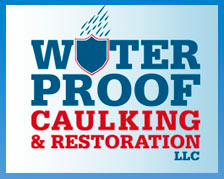If your home is looking drab or its exterior has become dirty and grimy over time, you may feel like pressure washing or power washing the outside is a quick, simple choice to get rid of this scum. However, the type of exterior that you have plays an important role in whether it is susceptible to damage from this sort of cleaning. Brick exteriors can be power washed, but there are a few things that you should know so that you do not inadvertently cause permanent damage to your exterior surfaces.
Risks Of Power Washing Brick
Brick can be a risky endeavor when it comes to power washing. While brick may seem sturdy and tough, the reality is that as a material, it is porous—this means that water that touches brick may be whisked into it through capillary action using the tiny holes that make up its surface. If you wash brick too aggressively, you can waterlog it and cause damage on the other side, toward the interior of your home. Additionally, power washing and pressure washing, as their names suggest, produce a powerful jet of water that can cause surface damage to many types of material if used improperly.
Brick Conditions Most Conducive To Power Washing
Some kinds of brick are more receptive and resilient to power washing than others. If your brick work is new and undamaged, it may be a good candidate for power washing. However, if your brick surfaces are older, chipping or feature large cracks, you will need to repair these deficiencies before it is safe to use a pressure washer. Otherwise, the powerful jet of water may cause additional damage by blasting cracks and other vulnerabilities open wider.
Remember The Pressure Setting
One of the most important things to remember when power washing in general—not just for brick—is that the pressure setting that you choose has a big impact on whether or not you do damage to your surfaces. Especially with power washing, rely on your detergent to do a lot of the cleaning and avoid using the highest power setting. When it comes time to rinse the detergent off, remember that it has already done the majority of the work; you should not need more substantial pressure than around 50 PSI to rinse and finish cleaning your exterior surfaces.
Carefully Choose Your Detergent
Because of brick’s porous nature that leaves it full of very small holes, this material is particularly susceptible to wear as a result of detergent. If you select the wrong type of detergent for the job, that cleaner will sit within the porous surface of the brick and eat away at it; washing all of the detergent away can sometimes be its own challenge. For brick, choose a cleaner that is less acidic. In fact, soft washing (or using specialized biodegradable cleaners that are much gentler) is preferred for brick. Standard cleaners such as ammonia and muriatic acid can degrade your brick and compromise the structure and integrity of the mortar in between. Soft washing is a specialized process, so trust the experts to help you navigate that task.
Maintain Your Distance And Pattern
The pressure setting is not the only thing to think about when it comes to the power of your washer. Even a lower pressure power washer can do a lot of damage if you hold it only a few inches away from the surface you are cleaning. Instead, remember to maintain an adequate distance, not only to safeguard your surfaces but to protect yourself as well from splashbacks of hot water off of the brick surfaces. Be consistent with your pattern as well; horizontal strokes that work from the top down are best to avoid waterlogging your bricks, and maintain a pattern of strokes that are about three to four feet wide. This will provide good coverage without soaking your bricks.
Trust The Experts To Wash Your Brick Safely Without Causing Damage
Power washing is a more nuanced process than you may have originally imagined. Whether you are concerned about how to properly conduct soft washing or you are nervous that you will cause permanent surface damage to your brick if you attempt the project on your own, you have options. The experts at Waterproof Caulking & Restoration would be happy to help you tackle this project safely and without causing damage. Reach out to us online or over the phone at (484) 265- 9646 to tell us more about your project goals and ideas, and we can contribute our own experience and knowledge to see your project done the right way the first time.
